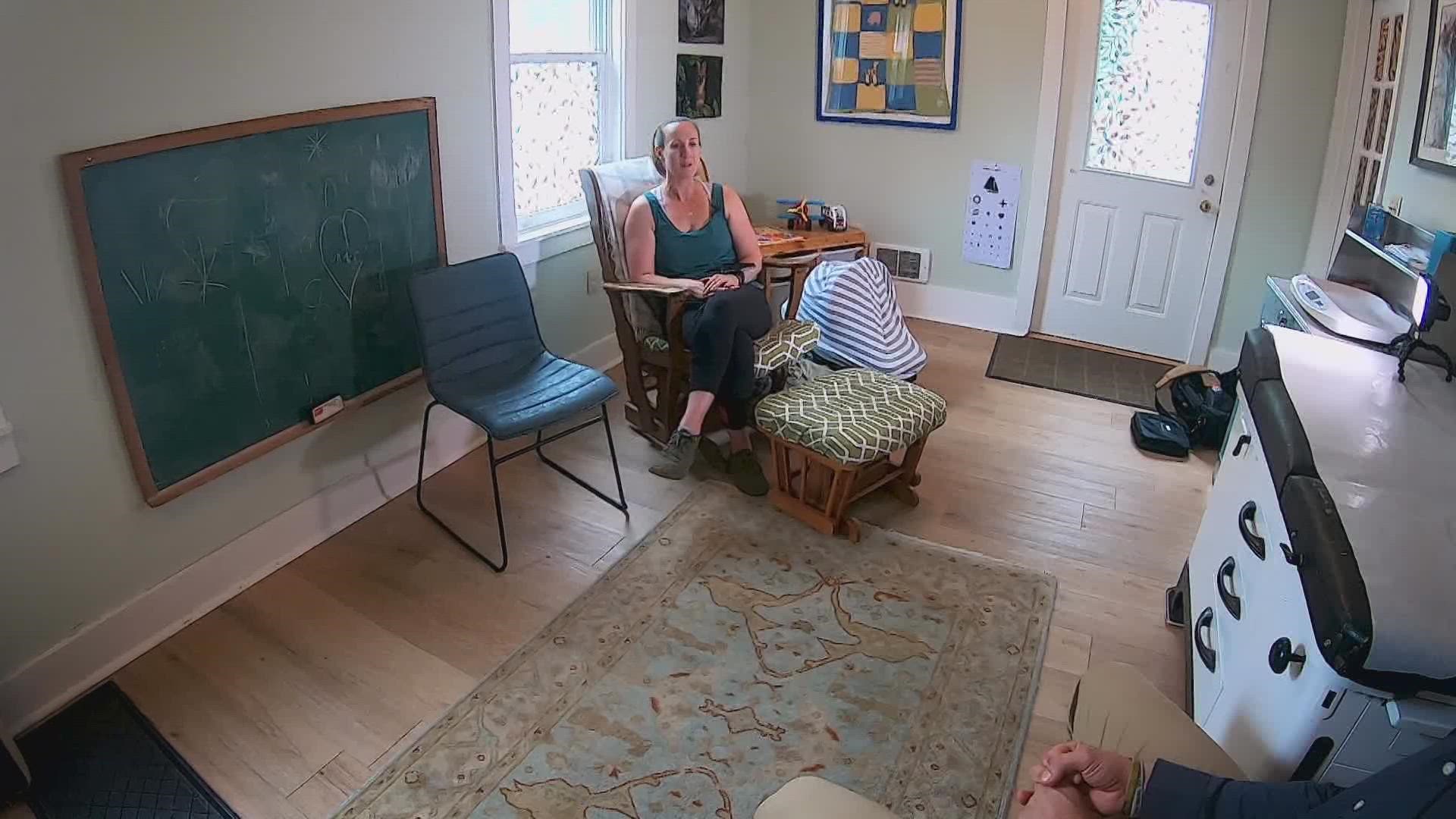PORTLAND, Maine — Women's health care has never been more in the spotlight than right now, after a U.S. Supreme Court decision made Friday effectively overturned Roe v. Wade.
Even before the ruling, people in Maine have been calling attention to a subject they say does not get enough focus: postpartum mood disorders.
Earlier this month, the Mills administration announced extended postpartum care for moms on MaineCare starting Aug. 1, 2022. It extends MaineCare coverage for services like recovery, follow-up, and mental health care from two months to 12 months.
Being a new parent brings a landslide of emotions.
Kristen Moustrouphis is a mom to 3-month-old Louie, and 3-year-old Joe.
With Joe, she felt the health care professionals missed a very important diagnosis.
"It had been building for months and months and had gone unseen," Moustrouphis said. "I just thought it was normal. Normal postpartum hormones. The 'baby blues,' if you will. I didn't realize it was postpartum depression manifesting as anxiety."
Nearly all moms who go to an OB/GYN or pediatrician get a depression screening called the Edinburgh Postnatal Depression Scale, or EPDS.
It asks the new parent to answer a series of questions about their mental health, but moms like Kristen feel this questionnaire alone is insufficient.
"That questionnaire is the only time that was spent on my mental health from my care providers either time," Moustrouphis said. "Only in hindsight can I go back and label it with those terms, because at no point in my postpartum journey did I have a care provider who was able to name it for me."
She had debilitating anxiety that caused her to stop going places. She said it stemmed from a lack of care that prevented her from fully connecting with her firstborn son.
"I think there's still some guilt I hold onto about that feeling," she said.
With Louie, she took a different approach. She worked with a independent pediatrician, seeking more support and care she felt was more thorough and less rushed.
"It's hard to be aware of a problem if you're not checking for it," Dr. Ali Kopelman, Moustrouphis' pediatrician, said. "When those needs are not met, they tend to amplify and worsen, and then when things go into crisis, that is the only time it gets addressed."
Dr. Kopelman said that is a big undercount.
"It's so common, and it's so present, but it's something that's never seen," Kopelman said. "Nobody wants to ask for help, especially women who feel like they can and should do everything, and if they're not doing everything, there's something wrong."
That stigma is one of the big barriers to new birth parents accessing mental health care.
"There is a stigma so much around 'I'm going to be judged as a bad mom,' versus, it's so common but not many people talk about it," Dr. Quynn Morehouse, a clinical psychologist from Cape Elizabeth, said. "It starts with the medical provider, because everyone when they're pregnant has a mental health provider, and it's a mental health issue."
She said some stress or sadness after childbirth is normal, but when that anxiety or depression interferes with normal activities, it indicates a parent needs more support.
Parents who start therapy and have a support plan in place before birth tend to have an easier time, Morehouse said, but she believes parents need to self-advocate for thorough care from their OB/GYN or pediatrician.
Moustrouphis said moms need to take care of themselves so they can provide for their kids.
"If our bucket is empty, if I have nothing left to give, then I can't give. If I don't have any oxygen to breathe, my time is so finite before I'm going to be in such a deficit that it's not just detrimental to me," she said. "It becomes detrimental to small humans whose lives I'm responsible for."
Moustrouphis runs a a group called "The Momma Movement" through her business, Beacon Community Fitness. "The Momma Movement is built on the belief that women experiencing the transition to motherhood deserve to feel strong and connected to their bodies and need support that looks different than what they’ve previously relied on," the website states.
If you need help, Postpartum Support International has a hotline that you can call or text: 1-800-944-4773.

